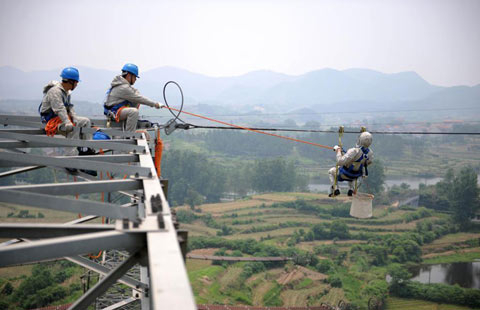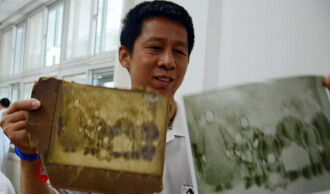China seeks to calm US fears over missile
By ZHOU WA ( China Daily ) Updated: 2014-01-16 03:09:57The Ministry of National Defense issued a statement on Wednesday dismissing media reports that China's recent ultrahigh-speed missile test flight was aimed at delivering warheads through the missile defenses of the United States.
"It is normal for China to conduct scientific experiments within its borders according to its plans. The tests were not aimed at any nation nor any specific target," the ministry said in a written reply to China Daily.
Western media have been playing up the significance of the hypersonic missile delivery vehicle test since The Washington Free Beacon news website quoted an anonymous Pentagon official as saying that the test was conducted with the aim of sending warheads through US missile defenses.
In an article on the test, the website reported that the new hypersonic missile was detected traveling at extremely high speeds over China.
US Pentagon spokesman Jeffrey Pool told the website, "We routinely monitor foreign defense activities and we are aware of this test."
Observers said reports that play up competition on military capabilities indicate a lack of mutual understanding on the part of the militaries of China and the US, but the misperceptions can be resolved through talks.
Lack of mutual strategic trust between the two nations is the reason why the US is worried about China's military development, said Fan Jishe, an expert on US studies at the Chinese Academy of Social Sciences.
"Washington is afraid that China's growing power will reduce its influence in the region, and threaten the interests of its allies, such as Japan and the Philippines. ... The US still enjoys the leading position in military ability, both strategic weapons and conventional armaments," Fan said.
"The US has been devoted to high-tech weapons research for a long time, and China is still rather backward in this field," he said.
China has been sufficiently transparent on developments in its military technologies to allow for the development of mutual trust with other nations, he added.
Li Qingkong, deputy secretary-general of the China Council for National Security Policy Studies, said, "There is no need for the US or any other country to worry about the development of the Chinese military, given that China's military expenditure is much lower than that of the US."
Such weapons use cutting-edge technology for flying and maneuvering at ultrahigh speeds in space and within the Earth's atmosphere.
The advantages of hypersonic craft include precise targeting, very rapid delivery of weapons, and greater survivability against missile and space defenses.
The Washington Free Beacon said the US, Russia, and China are all engaged in research on hypersonic weapons, while India is also developing a hypersonic variant of its BrahMos cruise missile.
Mo Jingxi and Zhang Fan contributed to this story.
|
|
|
|
|
|
|
|


















 Op Rana
Op Rana Berlin Fang
Berlin Fang Zhu Yuan
Zhu Yuan Huang Xiangyang
Huang Xiangyang Chen Weihua
Chen Weihua Liu Shinan
Liu Shinan